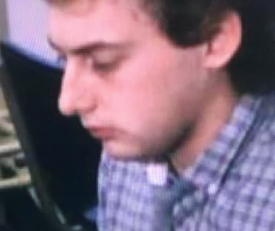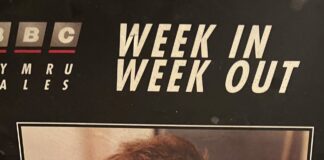- Round Robin - 19th February 2026
- Dark speak easy part one - 18th February 2026
- X marks the spot again - 17th February 2026
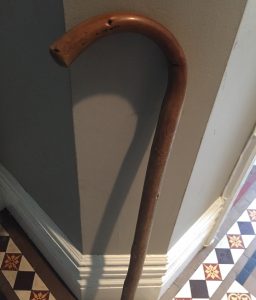
Here our Editor Phil Parry describes the difficulty of the disabling condition which affects him after former Home Secretary David Blunkett described movingly the problems for disabled people when he was left without a guide dog for five months.
As anyone who knows me will testify, I walk with a stick now. In a few years I will probably be in a wheelchair. I suffer from an incurable condition called Hereditary Spastic Paraplegia (HSP).
As my consultant explained it, this is basically a corrosion of the nerves which tell your legs to do what you want them to do. In years to come only stem cell research MAY find a solution, but in the meantime it becomes slightly worse every day. It is a rare disease, but mainly because it is often misdiagnosed as rheumatism. Sometimes there is not even a handrail on stairs, let alone a lift, and then I am completely knackered.

In many ways though, I am lucky. There is no pain and a lot of people are far worse off.
The trick with any disability (and I am not saying I possess it) is NOT to compare yourself with the way you once were, because that way lies madness, but to compare yourself with other people. Then you realise that others are in far worse situations.
The main problem is that your self-image is eroded.

I used to think I was a tireless, go-getting reporter, yet now I realise I am just a disabled bloke with a stick!
I long ago stopped looking at the reflection in shop windows because of this man hobbling around who was staring back at me!
All of this was thrown into stark relief for me by David Blunkett’s description of the problems he faced when he suddenly lost his guide dog Cosby.
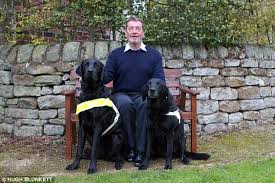
He wrote: “For the first time in my life, certainly my adult life, I felt blind. This may sound strange. Of course I am blind. I have not been able to see throughout my entire life, although I have had perception of light and dark. But being blind and feeling blind are two very different things”.
He told how he discovered walking with a long cane, the bits of buildings that he never knew existed, and how he sometimes tripped over objects that had been carelessly left unattended by their owners.

Lord Blunkett also wrote in very moving terms how all disabled people want is DIGNITY. I know exactly where he is coming from. But to dignity I would add the fact that we want to be treated exactly the same as EVERYONE ELSE.
This means that people need to think more.
The thoughtlessness of others is far worse than the education I survived, or the other illnesses I have suffered.
It may sound like this is a criticism of people, but I have always found them extremely kind and helpful when things are pointed out. The problem is they simply do not THINK about the little things that make the lives of disabled people easier. It just does not register in their consciousness for them.
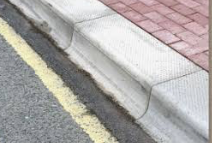
For example kerbs at key points on pavements could be lower. Those knobbly lower kerbs at corners are great, but they are not enough. We need them in the middle as well.
Paving slabs on pavements need to be more even. Usually I risk life and limb by walking in the road because the surface is much smoother.
The ramp into a public building or office is usually located far away from the direct steps to the front door, and you feel like an outcast using it.
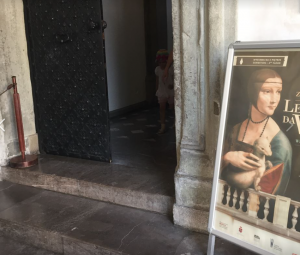
I stress once again, that you just wish to be treated exactly the same as everybody else. Little thought for the disabled has gone into the creation of public buildings, and the number of times I have been unable to get to my seat to see something are legion.
For example I saw a play once and my seat was at the back of the auditorium WITHOUT a handrail. The friend who was with me literally had to CARRY me to my seat, which was extremely kind of him but very undignified!
On another occasion in London I could, again, get into the auditorium of the theatre, but my seat was down a flight of stairs again without a handrail. I told the attendant there was no way I could get to my seat and I was preparing to go outside until a generous man offered me his own seat near to where I was standing stranded with my stick.

When I went to see a recent Cardiff City v Man City football game at the Cardiff City Stadium I could drag myself up the steps into the stadium because there was a handrail, but the seat itself was up another flight of steps once more without a handrail, and then past a number of people.
There was no way I could reach it.

I went back down the steps, resigned to seeing the match on the TV screen under the stand, but in fairness the stewards came to get me and gave me a special disabled person’s seat right by the touchline. It was a much better seat in fact! But the humiliating experience made me realise this whole system needs to be re-thought.
Lord Blunkett stated: “Throughout my years in government I never wanted to be the spokesman for the disabled. That would have been to undermine the raison d’être of everything I was doing — demonstrating that I could work on equal terms with anyone else”.

I would never claim to be in his league, either with what he has achieved (he was after all Home Secretary in the early 2000s), or how he has coped with his disability. But I know exactly what he means.
You want to be ‘on equal terms with anyone else’ – let’s hope the New Year brings change, but I doubt it somehow!
Tomorrow – another troublesome Freedom of Information Act (FOIA) request faced by BBC Wales.
Check your knowledge of major events as revealed on The Eye, with our brilliant interactive quiz: [viralQuiz id=1]








